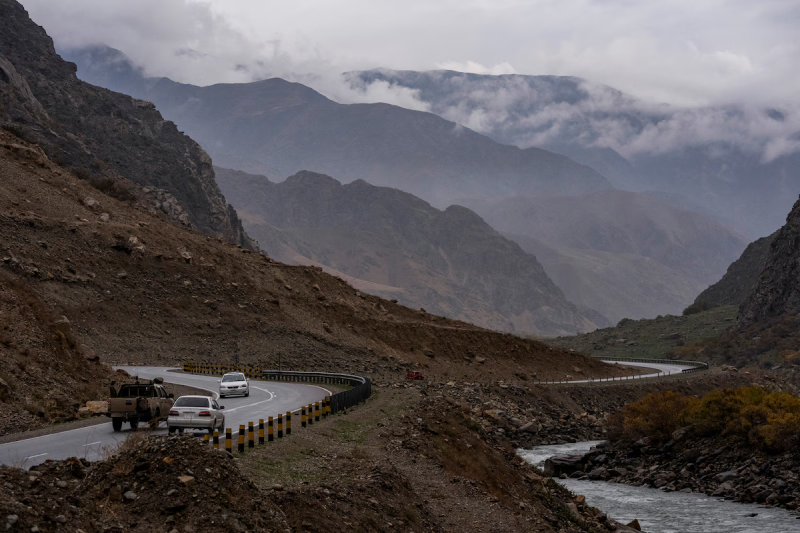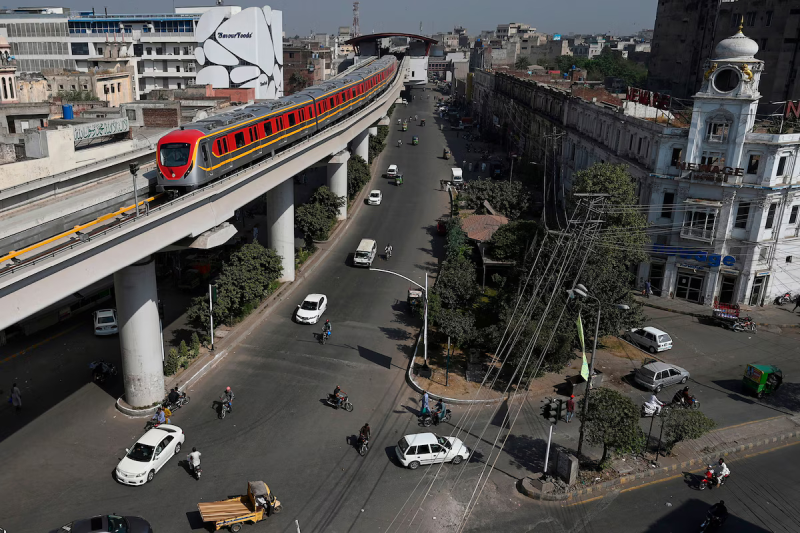Liu Zongyi Interviewed by The Washington Post
Liu Zongyi
In a meeting last month in Beijing, Afghanistan and Pakistan agreed to reinstate diplomatic ties after years of deteriorating relations and surging violence.
A Taliban vehicle passes a car along the road through Badakhshan to the Wakhan Corridor in northern Afghanistan in November. (Carolyn Van Houten/The Washington Post)
As Pakistan and India exchanged strikes last month, bringing the nuclear-armed nations to the brink of all-out war, regional diplomats worked quietly to end a different conflict — with help from China.
In a May meeting in Beijing, Afghanistan and Pakistan agreed to reinstate ambassador-level diplomatic ties after years of deteriorating relations and a surge in deadly violence along their shared border. Afghanistan was also invited to join the China-Pakistan Economic Corridor (CPEC), a multibillion-dollar infrastructure project that is a cornerstone of China’s economic ambitions.
The long-elusive breakthrough was the culmination of years of diplomatic efforts by China, according to five Pakistani and Afghan officials with knowledge of the talks, most of whom spoke to The Washington Post on the condition of anonymity to discuss confidential negotiations. But it was the fighting with India, which put strain on Pakistan’s already overstretched military, that gave the talks added urgency and helped get the deal across the finish line, said one Pakistani official.
“That was the moment all sides realized it’s best for them to work together to solve the problems,” the Pakistani official said.
Negotiators from both sides, as well as their Chinese mediators, were driven by a set of converging interests, officials said. Afghanistan is desperate for economic investment to help weather Western sanctions and global aid cuts; Pakistan is beset by multiple insurgencies and is eager to stabilize its volatile western border; China is increasingly frustrated by militant attacks on its infrastructure projects in Pakistan.
Beijing was probably also keen to bolster its image as a diplomatic power broker, analysts said, and to present an alternative to Western-led peace efforts. Last week, China launched an International Organization for Mediation in Hong Kong, which Foreign Minister Wang Yi said was intended to “fill a gap” in global statesmanship.
“With [President Donald] Trump and the United States shirking responsibility ... other countries need to take responsibility,” said Liu Zongyi, an analyst at the Shanghai Institutes for International Studies, a state-affiliated think tank in China.
Children walk past their home on May 17 in Kotli, an area in Pakistani-administered Kashmir that had been recently attacked by Indian forces amid tensions between the two countries. (Saiyna Bashir/For The Washington Post)
Pakistani officials emphasized that the deal includes a commitment from the Taliban-run government to stop militants from operating in Afghanistan. Islamabad has long accused Kabul of stoking a cross-border insurgency by the TTP, or Pakistani Taliban — a group that operates independently but has sworn allegiance to the Afghan Taliban.
Leaders in Kabul have denied supporting or sheltering the TTP. But in an interview last week, Afghanistan’s consul general in Peshawar, Hafiz Mohibullah Shakir, said the Taliban-run regime had now “reaffirmed that Afghan soil will not be used against Pakistan or any other country.”
The deal “helps ease pressure on Pakistan’s western frontier, which is crucial for Islamabad’s internal and border security,” said Mushahid Hussain Sayed, a former chairman of Pakistan’s Senate Defense Committee.
Militant violence along the border has also threatened China’s CPEC investments in Pakistan’s southwestern and northwestern provinces, which include railway lines, deepwater ports, oil and natural gas pipelines, and industrial zones. At least 20 Chinese nationals have been killed in the country since 2021, and Beijing recently urged Pakistan to take “effective measures to protect the safety of Chinese citizens, institutions and projects.”
CPEC is a flagship part of China’s Belt and Road Initiative, a trillion-dollar plan to build infrastructure in more than 150 countries. For a decade, officials in Beijing have spoken about the possibility of extending the China-Pakistan economic corridor into Afghanistan.
Now, after years of war and instability, “everyone is very enthusiastic,” said Lin Minwang, an international relations professor at Fudan University in Shanghai. But whether the deal can deliver real security to the region — and give Chinese businesses the confidence to invest there — is an open question.
The Afghan Taliban has long hesitated to crack down on the TTP in areas where China hopes to expand its economic footprint. Many rank-and-file members of the regime view their counterparts in the Pakistani Taliban as brothers in arms, and have pushed the regime in Kabul to publicly support them.
Yet analysts in Islamabad say Afghan authorities appear to have already begun to rein in the militants. “TTP activities have been curbed quite substantially,” said Asif Durrani, Pakistan’s former special representative for Afghanistan. “They must have been told to behave.”
Shakir, the Afghan consul general in Peshawar, said the issues that divided Pakistan and Afghanistan in recent years “have almost been resolved.”
That message is already being conveyed domestically. In a recent address to graduates of a Taliban-run police school, a senior commander, Saeed Ullah, urged Afghans to refrain from signing up with foreign militant movements. “Joining other groups and fighting abroad” without the approval of the Taliban leadership “is not jihad,” he said in a widely circulated video.
The Taliban is under mounting economic pressure. Foreign aid cuts have forced humanitarian organizations to scale back their operations in the country, and Pakistan’s push to deport hundreds of thousands of Afghan refugees has put further strain on a saturated labor market.
A train moves along a newly opened metro line built as part of the China-Pakistan Economic Corridor in Lahore, Pakistan, in October 2020. (Arif Ali/AFP/Getty Images)
In recent months, India appeared willing to help fill the void, sending officials to Afghanistan for high level-talks and easing visa restrictions for Afghans. But Kabul has long viewed China as the more important trading partner and now sees an opportunity to position itself at the center of trade between China, Pakistan, Central Asia and Europe.
“It opens new doors,” said a senior Afghan Taliban member, speaking on the condition of anonymity because he was not allowed to talk to journalists. He said the regime is hoping for thousands of new jobs from Chinese investment in roads, railways and industrial parks.
China’s interest in cooperating with the Taliban goes beyond economics. The Chinese government has accused militant groups in the region of stoking violence and division across the border in Xinjiang, a Muslim-majority province where authorities have carried out a program of mass detentions and political indoctrination to fight what they describe as extremism. In 2022, the United Nations concluded that China may have committed crimes against humanity in Xinjiang.
“China cannot send its own troops to Afghanistan to fight against terrorism,” Lin said. “All we can do is help the Taliban government so they will help China crack down on the terrorist forces that target Xinjiang.”
Moderate members of the Afghan government may be willing to overlook China’s domestic treatment of Muslims in exchange for economic development. But it’s unclear whether hard-liners in the regime, who tend to view outside influence with suspicion, will be as willing to accept the trade-off. Over the past two years, a more conservative and reclusive wing of the Taliban leadership based in the southern city of Kandahar has been steadily gaining influence, according to analysts.
In Kandahar and beyond, there is likely to be lingering skepticism of Pakistan’s motives in Afghanistan. The Taliban has a long and complex history with Pakistan’s intelligence service, which at times has held significant sway over the group and at other times has clashed with it. Many Afghans suspect Pakistan’s primary goal is to keep them from rising to the status of an equal partner.
Under the new plans, Pakistan is expected to remain at the center of China’s regional trade, with Afghanistan serving as a link to Central Asia. “Things have to go through Pakistan,” said a senior Pakistani official.




